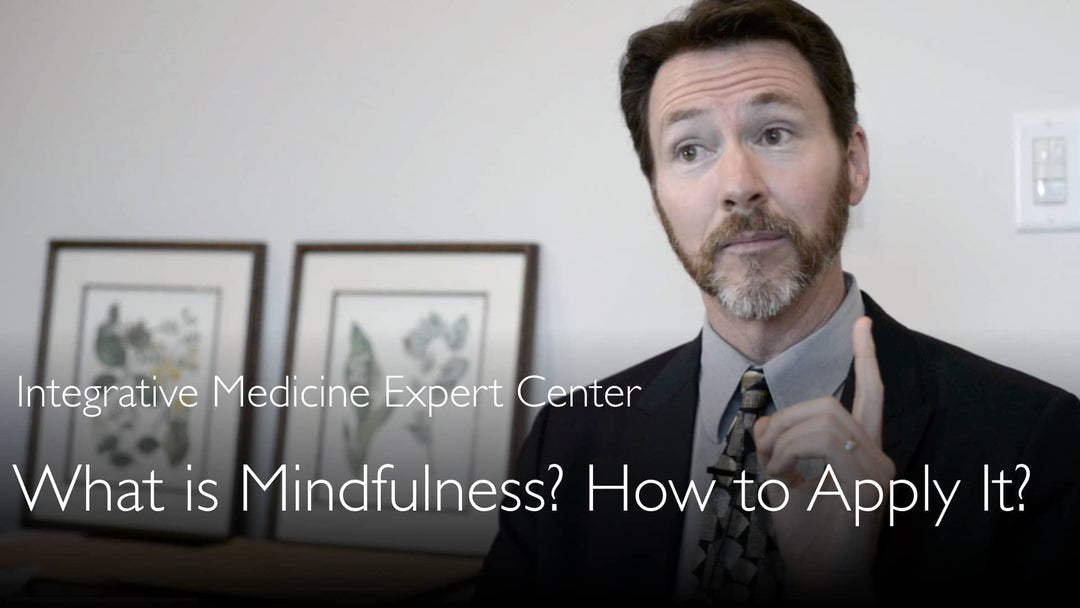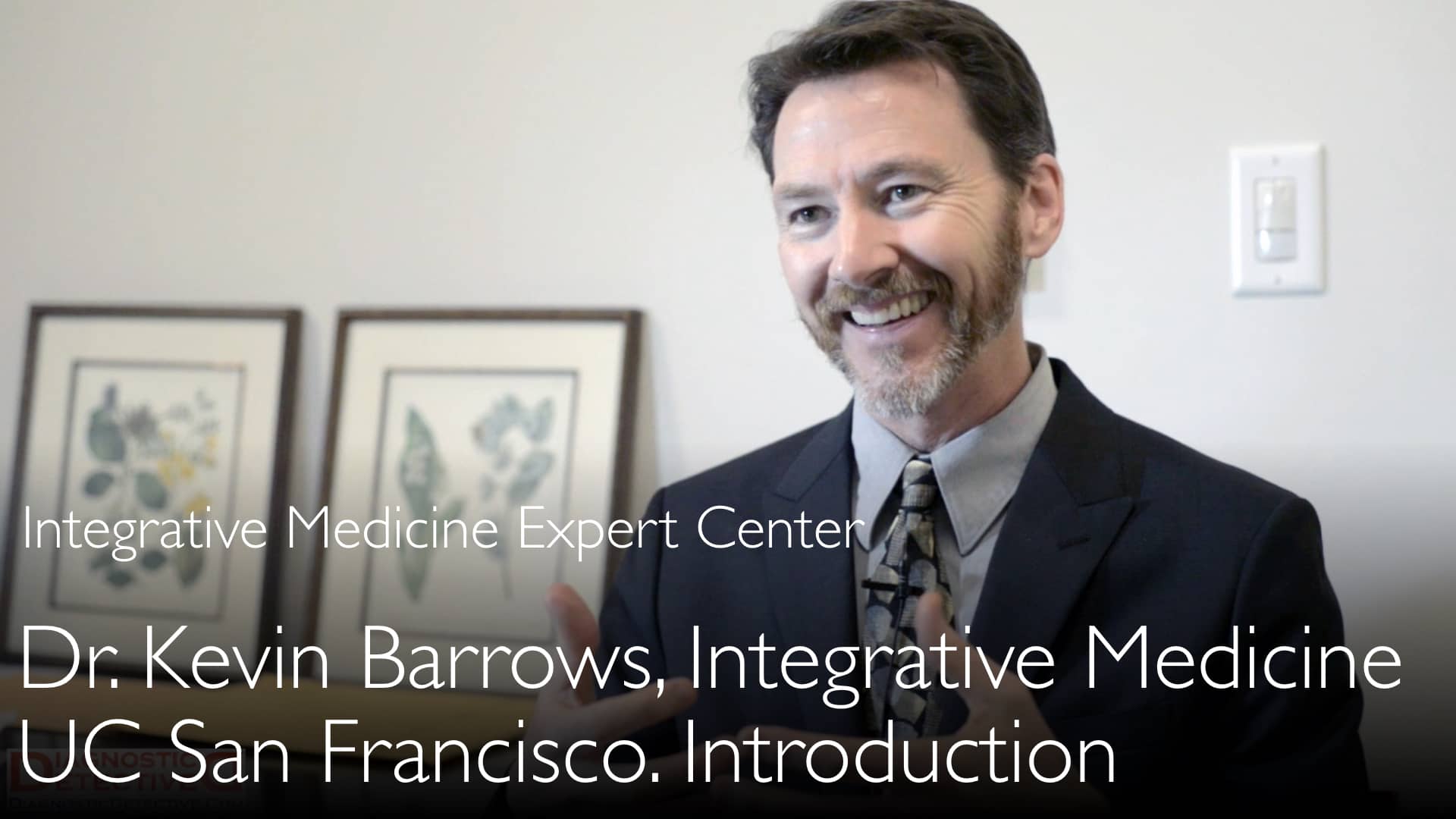Le Dr Kevin Barrows, expert de renom en médecine intégrative, explique comment la pleine conscience peut favoriser la rémission du cancer et améliorer la qualité de vie des patients. Issue de traditions bouddhistes anciennes, cette pratique est aujourd’hui utilisée de façon laïque en médecine pour renforcer l’attention et la concentration. Le Dr Barrows détaille ses bienfaits dans diverses pathologies, comme la dépression, l’anxiété, les douleurs chroniques et les symptômes liés au cancer. Il recommande également des ressources clés, notamment les ouvrages d’Eckhart Tolle et de Jon Kabat-Zinn, qui proposent des conseils concrets pour intégrer la pleine conscience au quotidien.
La Pleine Conscience dans le Rétablissement du Cancer et la Prise en Charge des Maladies Chroniques
Aller à la Section
- Comprendre la Pleine Conscience
- La Pleine Conscience dans le Rétablissement du Cancer
- La Pleine Conscience pour les Affections Chroniques
- Livres Recommandés sur la Pleine Conscience
- Pratique et Bienfaits de la Pleine Conscience
- Transcription Intégrale
Comprendre la Pleine Conscience
Selon le Dr Kevin Barrows, MD, la pleine conscience est une pratique qui consiste à porter son attention de manière spécifique, favorisant ainsi la concentration et la conscience. Bien que ses origines remontent aux traditions bouddhistes anciennes, son application en médecine est entièrement laïque. Elle implique d’observer pensées et sensations sans y réagir, ce qui favorise un état d’ouverture et de lâcher-prise.
La Pleine Conscience dans le Rétablissement du Cancer
Le Dr Kevin Barrows, MD, souligne l’utilité de la pleine conscience dans le rétablissement du cancer. Elle améliore la qualité de vie des patients en réduisant la fatigue, en favorisant un meilleur sommeil et en atténuant le stress lié aux traitements. La pleine conscience offre un cadre mental qui aide les patients à faire face aux défis de la thérapie anticancéreuse.
La Pleine Conscience pour les Affections Chroniques
La pleine conscience s’est avérée bénéfique pour diverses affections chroniques, telles que la dépression, l’anxiété et la douleur chronique. Le Dr Kevin Barrows, MD, indique que plus de 120 essais cliniques ont montré des résultats positifs, confirmant son efficacité dans la prise en charge de ces troubles. Elle est également utile dans le traitement de maladies auto-immunes comme la sclérose en plaques et le syndrome du côlon irritable.
Livres Recommandés sur la Pleine Conscience
Pour approfondir la pratique de la pleine conscience, le Dr Kevin Barrows, MD, recommande plusieurs ouvrages clés. Le Pouvoir du Moment Présent d’Eckhart Tolle explore les dimensions spirituelles de la pleine conscience, tandis que Au Cœur de la Tourmente, la Pleine Conscience et Où Tu Vas, Tu Es de Jon Kabat-Zinn offrent des conseils pratiques pour l’intégrer au quotidien.
Pratique et Bienfaits de la Pleine Conscience
La pleine conscience est généralement enseignée lors de cours de huit semaines, un format que le Dr Barrows juge efficace pour développer l’attention et la concentration. Cette pratique s’est révélée utile pour les troubles de santé mentale et la douleur chronique, offrant une approche holistique du bien-être. Elle encourage une observation non réactive de l’esprit et du corps, favorisant ainsi calme et résilience.
Transcription Intégrale
Dr Anton Titov, MD : En quoi consiste la pratique de la pleine conscience ? Des experts en médecine intégrative expliquent comment elle peut soutenir le traitement et le rétablissement du cancer. Quels sont les meilleurs livres sur le sujet ? Comment appliquer la pleine conscience au quotidien ?
Comment utiliser la méditation de pleine conscience dans le rétablissement du cancer ? Thérapie par la pleine conscience pour la sclérose en plaques. Applications en oncologie. Comment pratiquer ? Quels livres lire ? Le Pouvoir du Moment Présent d’Eckhart Tolle. Au Cœur de la Tourmente, la Pleine Conscience de Jon Kabat-Zinn.
Dr Kevin Barrows, MD : La pleine conscience, pour la définir simplement, est une manière spécifique de porter son attention. Ses origines remontent à une pratique bouddhiste vieille d’environ 2500 ans, mais la forme utilisée en médecine est entièrement laïque. La plupart des patients diraient que c’est une méthode universelle pour comprendre le fonctionnement de l’esprit.
Les qualités attentionnelles que nous cultivons incluent parfois une pratique de concentration, où l’esprit se fixe sur un objet plus longtemps. Au-delà de la concentration, on développe aussi l’ouverture et le lâcher-prise. On cultive une perspective de témoin : une partie de vous observe les activités de votre esprit ou les sensations de votre corps, sans réagir, simplement en constatant.
La recherche montre que la pleine conscience a des effets positifs. Elle est souvent enseignée lors de cours de huit semaines. Plus de 120 essais cliniques ont été menés, et la grande majorité des résultats sont favorables. Elle s’avère utile contre la dépression et l’anxiété. D’autres études, plus modestes, montrent son intérêt pour d’autres troubles mentaux.
La pleine conscience aide également en cas de douleur chronique, quelle qu’en soit la cause. Elle a de nombreuses applications en oncologie : elle améliore la qualité de vie, réduit la fatigue, favorise le sommeil et diminue le stress lié aux traitements. D’autres études indiquent des bénéfices pour des affections comme le syndrome du côlon irritable, et pour des populations spécifiques, telles que les habitants de quartiers défavorisés ou les groupes bilingues.
Dr Anton Titov, MD : Nous parlons souvent de la pleine conscience et de l’observation du corps et de la respiration. Connaissez-vous le livre d’Eckhart Tolle, Le Pouvoir du Moment Présent ? Le recommanderiez-vous à vos patients ? Quelles autres ressources conseillez-vous généralement ?
Dr Kevin Barrows, MD : Oui. Le Pouvoir du Moment Présent d’Eckhart Tolle relève bien de la pleine conscience. À sa lecture, j’ai été impressionné, même si le terme n’y est peut-être jamais employé. Le livre insiste surtout sur les bénéfices spirituels de la pratique, qui peuvent être considérables. La pleine conscience ayant des origines spirituelles, j’apprécie cet ouvrage et le recommande.
Cependant, en contexte médical, je ne le suggère pas systématiquement, sauf si le patient manifeste un intérêt pour cet aspect. Pour aider les patients confrontés à la souffrance — douleurs dorsales, anxiété, etc. —, je recommande d’autres livres.
Jon Kabat-Zinn, fondateur du programme de réduction du stress basée sur la pleine conscience en 1979, a écrit des ouvrages excellents. Au Cœur de la Tourmente, la Pleine Conscience est le manuel de référence pour un cours de huit semaines. Un autre de ses livres, Où Tu Vas, Tu Es, est plus court et accessible. Je le recommande pour une première approche, tandis que le premier convient à ceux qui souhaitent s’engager dans une pratique approfondie.
Dr Anton Titov, MD : Merci, ces informations sont très utiles. Qu’est-ce que la pleine conscience ? Son utilisation dans le rétablissement du cancer et les maladies auto-immunes (sclérose en plaques, syndrome du côlon irritable). Meilleurs livres sur la pleine conscience.





